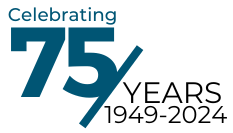Good company culture is helpful to the overall success of an organization. But what actually reflects a positive culture? Here are some important things to look for when assessing your organization’s culture.
Long-Term Employees
One of the most valuable parts of a business is employee happiness. A great indicator of positive company culture is long-term employees. When there is little employee turnover, it’s a good sign that the employees are happy with the current culture and enjoy working for the organization.
Clear Values
Many companies are built on a strong mission statement and values, and those values oftentimes are translated into the company culture. When an organization has a positive culture, each person within the company doesn’t just know what those values are, but they believe in them and use them as a guide for everything they do at work. It’s important to maintain values that are accessible, achievable, and motivational.
Employee Recognition
There would be no company culture without employees, and ensuring those employees feel recognized and celebrated can oftentimes become paramount to the overall culture and success of the organization. When you celebrate every win, each employee is provided with a confidence boost and become more motivated to continue their success through hard work.
Accessible Leaders
Leaders in an organization don’t just play a significant role in the success of the organization, but they become examples of the company’s values, mission, and ultimately, culture. Employees tend to gravitate towards leaders that are accessible, honest, approachable, authentic, and kind. In turn, this makes the workplace a comfortable place to be for all employees and helps ensure everyone works together and feels like they are on the same team.
Every company culture is different, but when assessing your own organization’s culture, these indicators can be a great reference point. If you want to go beyond this checklist, consider hosting a meeting in your breakroom where employees can share their own perspective on the current culture and ways to enhance it.
Sponsored by: 


